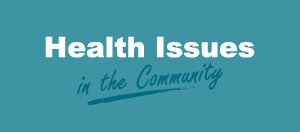Part 2 - Tutor Guidelines
Section 3 - Rough Guide to the Units
| Contents |
|---|
UNIT 9: GLOBAL PERSPECTIVES TO LOCAL REALITIES
Learning Objectives
To explore and discuss the links between global, national and local health policy/strategy and the real issues that people face in their own communities.
(Exercises 2 and 3)
To critically examine differing views of life in disadvantaged communities
(Exercise 4)
Learning Methods
Reading and analysis, reading and critical discussion, small group work, participative exercise, large group discussion. Group Interview Preparation.
Overview
This unit provides an opportunity to recap on Part 1 of the course before moving on to look at the World Health Organisation’s Declaration and different ideas about social justice. Exercise 4 can be tricky with a large group.
UNIT 10: COMMUNITY RESEARCH
Learning Objectives
To introduce participants to the issues surrounding carrying out community- based research (Exercises 1, 2 and 3)
To establish a methodology of approach to community- based research
(Exercises 4 and 6)
To introduce a range of research methods appropriate to community- based research (Exercise 5)
Learning Methods
Tutor input, small group work, group discussion
Overview
This unit introduces the group to community- based research and helps them to start to focus on how they are going to set their research question and the practicalities of undertaking their research.
UNIT 11: PRIVATE TROUBLES AND PUBLIC ISSUES
Learning Objectives
To introduce the distinction between individual and structural explanations of ill health (Exercise 2)
To raise awareness about the multi-causal nature of health problems (Exercise 2)
To develop thinking about collective working and community development approaches to health (Exercise 3)
Learning Methods
Large group creative thinking, tutor input, small group reading and analysis, large group discussion, small group action planning. Group research preparation.
Overview
This unit looks at the distinction between individual and structural explanations for health problems. It then takes one particular topic (in this case food) and explores it through the use of different pieces of reading. The collective working aspect is then further developed through a case study exercise, again using the issue of food as an example.
UNIT 12: MAKING DEMOCRACY WORK
Learning Objectives
To present an introduction to structures in the public sector and how they work (Exercises 3 & 5)
To introduce ideas around community engagement and involvement
(Exercise 2)
To develop an awareness of public policy-making processes and scope for community involvement/ influence (Exercises 3, 4 & 5)
Learning Methods
Small group brainstorming and discussion, tutor input and directed discussion, small group discussion, participative exercises. Research preparation
Overview
This unit introduces participants to the idea of consumers and citizens. It also starts to develop thinking about the structures that affect peoples’ lives and how to influence them. The unit also involves invited guests coming in to speak about community/public involvement in their service or programme and so affords the opportunity for participants to talk directly to decision-makers and gain some insight into how this operates at a local level.
What Tutors said
Inviting people to talk with the group was fantastic and very much a 2-way process. Our guests were really impressed with the work we had been doing and the planned exercise was abandoned to talk some more. It was a great promotion for the course and a boost for the group to have people interested in what they had been doing.
We organised a trip to the Scottish Parliament with our MSP. A fair bit of extra time and effort were required but it was really worthwhile.
UNIT 13: GETTING BELOW THE SURFACE
Learning Objectives
To examine ideas and methods of identifying health issues (Exercises 2 & 4) To develop a critical awareness of the role of education (Exercise 4)
To enable people to say what really concerns them (Exercises 2 & 3)
To enable participants to have a go at using popular education methods
(Exercise 4)
Learning Methods
Small group creative thinking and discussion, tutor input and directed discussion, small group discussion, participative exercises. Community research update.
Overview
This unit begins to help participants to look at underlying values and principles as well as looking at methods/techniques that can be used in community work. It also develops the theme of collective working and introduces popular education ideas and methods. Talking about values, sensitive issues and power relationships can bring personal and emotive issues into the discussions.
UNIT 14: WORKING WITH GROUPS
Learning Objectives
To outline some basic group work skills. (Exercises 1 and 2)
To introduce some basic concepts of group dynamics and group process
(Exercises 1, 2 & 3)
To explore some key ideas about assessing community strengths.(Exercise 4)
Learning Methods
Role Play, group discussion
Overview
This unit looks at key elements of group work including task and process, conflict in groups and reviewing groups in a little bit more depth. It should build on the knowledge and group experience that has been built up over the duration of the course as well as helping participants develop a wider understanding of group dynamics. The unit begins an exploration of how effective groups are in the community
What Tutors said
By this time so much had happened as a group and we were able to laugh at some of these things that had happened to understand the task and process. I offered a few inputs about what it had been like for me as a tutor especially the times when it was difficult to stop discussion and there was another exercise to do.
UNIT 15: COMMUNITY RESEARCH PROJECTS – PRESENTATION AND ANALYSIS
Learning Objectives
To provide an opportunity for people to present their research findings
Learning Methods
Presentation of research findings and discussion
Overview
For tutors this is really a facilitation and feedback exercise. Tutors need to be positive and supportive.
UNIT 16: REVIEW AND EVALUATION
Learning Objectives
This is a review and evaluation unit – no objectives applicable
Learning Methods
Group discussion and individual completion of evaluation questionnaire
Overview
End on a positive note!!

